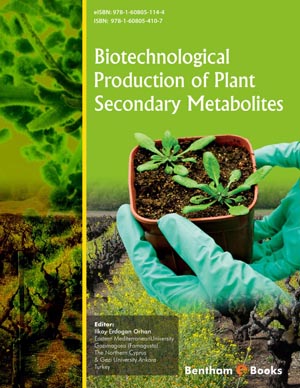Abstract
Plants are an important source of secondary metabolites that have been used throughout history as drugs, pesticides, pigments, flavors and fragrances. However, one of the main constraints to the use of cultivated plants as a source of these metabolites is the ability to ensure the constant and efficient supply of the compounds, since the yields are usually affected by the genetic background, as well as by the geographic location, edaphic and climatic conditions at the site of cultivation, combined with the potential effect of harvest and transport methods. The use of plant tissue culture has been proposed as an alternative to conventional agriculture for the production of secondary metabolites due to the possibility of controlling the quality and quantity of the compound of interest by controlling the factors affecting its synthesis and/or accumulation. Recent advances in the field of plant biotechnology show the potential of using plant cell and tissue cultures as a source for the large-scale production of valuable secondary metabolites instead of using whole plants and subsequent extensive land exploitation. Moreover, the employment of molecular biology techniques has allowed for obtaining novel products from genetically engineered plants.
Keywords: Secondary metabolites, biological activity, plant cell culture, tissue culture, biotechnology, mass production, culture medium, organ culture, cell suspension, explants, callus, Agave tequilana, elicitor.

















